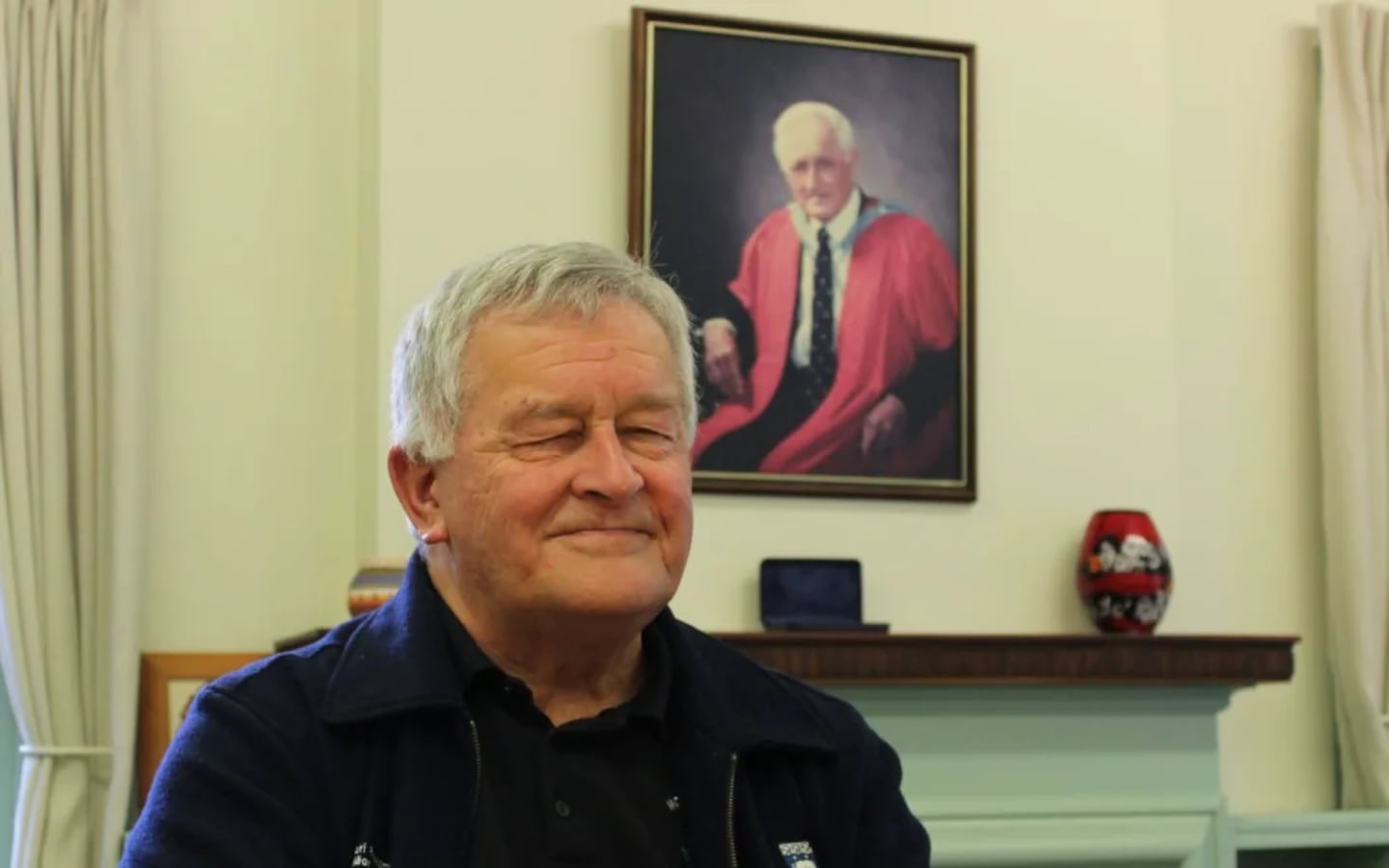This article was first published by RNZ.
The son of the late Tai Tokerau kaumātua Sir James Henare hopes the mahi done at the research centre named after his father will help uplift the North.
Te Whare Rangahau o Hemi Henare, the James Henare Research Centre at Waipapa Taumata Rau, University of Auckland, was established in 1993 to support Te Tai Tokerau through social, environmental and economic research.
It was named in honour of Sir James, the Māori Battalion veteran and Ngāti Hine leader who played a key role in Ngāti Whātua’s Treaty of Waitangi claim over Ōrākei in the 1980s.
Although Sir James passed away in 1989, shortly before the centre was launched, his son Bernard has carried on the connection, now chairing the centre’s advisory board.
He said Te Tai Tokerau holds both great potential and heavy challenges.
“A centre like this is badly needed, because the North is underdeveloped, with not much industry. The health statistics are not too flash, there’s pretty widespread poverty and drugs like P are causing a lot of problems.
“It’s an area with a lot of potential, but also a lot of baggage. It would be great if the centre could help lift the health and wellbeing of people up there.”
Henare hopes that one day people “won’t have to leave” the Northern region and that they can “find the mahi, the sustenance, the lifestyle within their own rohe, and not have to go further afield to get it.”
“That’s the hope… that the area will become self-sustaining.”
“Once you’ve got a happy and contented population, all the bad stuff falls away.”

A whare with whakapapa
The centre’s origins go back to the early 1990s when Sir Hugh Kawharu and other Māori academics saw the need for research focussed on Te Tai Tokerau.
They approached the Henare whānau for permission to use Sir James’ name.
“They asked my mother. My father had passed away by then. She agreed, on one condition, that they leave off the title ‘Sir’. That’s how the centre got its name,” Henare told RNZ.
Over three decades, the centre has become a training ground for tauira and a hub for research on many areas, including health and te taiao.
“It’s a conduit for learning and training for our people.”
The centre’s current home on Wynyard Street, close to Waipapa Marae in Tāmaki Makaurau has its own connection to their whānau whakapapa.
“It’s got an interesting history, this whare. Wynyard is our original surname,” he said.
His great-grandfather Ngāpuhi leader Henare Wynyard was, according to whānau knowledge, the son of Colonel Robert Wynyard, commander of British troops during the northern wars.
Henare Wynyard married Pane Peeni Ereatara (Wynard) of Pipiwai, and their children, including Bernard’s grandfather Taurekareka [Tau] Henare, were all born Wynyards.
“With the street out here being called Wynyard Street, the centre being on it, it was almost like a coming home.”

Memories of a father
While Sir James is remembered nationally as a soldier, leader and advocate for te ao Māori, Henare recalls him most as a loving father.
“Our dad was a loving father. He never hit us. The disciplinarian in our house was our mother,” he said.
“He was a stickler for things like manners. We never went hungry, we were always clothed and looked after. We never lacked for anything.”
The Henare home was constantly full of visitors seeking advice or help.
“Our house was like a Western saloon, with people coming in and out. He was, I suppose, a de facto JP. People would come and get things witnessed, signed, ask him to write references.”
Sir James also maintained friendships with leaders across Aotearoa and beyond, including a lifelong bond with Sir Bernard Fergusson, who later served as Governor-General of Aotearoa New Zealand.
While his father was deeply committed to te ao Māori and fulfilled leadership roles, Henare said his own path was quite different.

“I was a rebel. I didn’t really want to follow my father’s footsteps...I was pretty wayward and did my own thing.”
“I was a bit of a daddy’s boy and I think he saw me as the one who would inherit his mantle - but I had other ideas,” he laughed.
Henare grew up in Mōtatau and attended Tipene, the old St Stephen’s Māori Boys School.
After school he worked in the freezing works, circuses and later the railways, where he spent more than 50 years at KiwiRail before retiring in April 2025. He now works part-time for the company in a kaumātua advisory role.
Henare said he was not always seen as the one to carry his father’s mantle.
“I decided there were two ways I could live my life. One was in my father’s shadow, or two, I get out and make my own way in the world. And that’s the way I went.”
“I avoided it for a long time. I didn’t need to step up because my siblings were still around. But as they passed on, and then my younger brother too, there was nobody left.”
“You can run away, but keep running, or you can stand and deliver. For me, that’s where I am now.”

Hopes for Te Tai Tokerau
As he looks to the future, Henare hopes to see Te Tai Tokerau thriving, supported by the research centre and by the generations to come.
“We’d all like to see the north thrive... not just bits and pieces of it, or the main centres.”
Henare said his father’s values continue to guide him in his role at the centre, particularly the vision for a stronger, healthier North.
“It’s a place with a lot of potential, but unrealised.”
The whakataukī his father often quoted remains a reminder of that vision:
Kua tawhiti kē tō haerenga mai, kia kore e haere tonu. He nui rawa ō mahi, kia kore e mahi tonu.
You’ve come too far not to go further. You’ve done too much not to do more.
By Layla Bailey-McDowell of RNZ.



